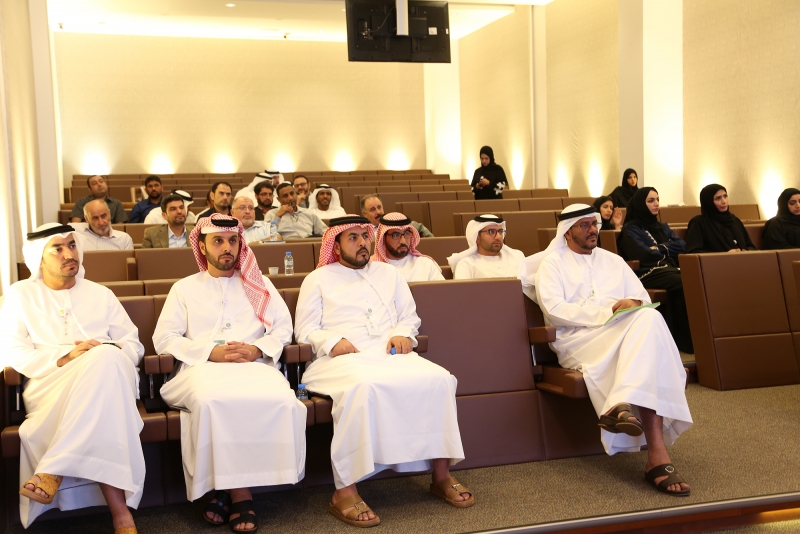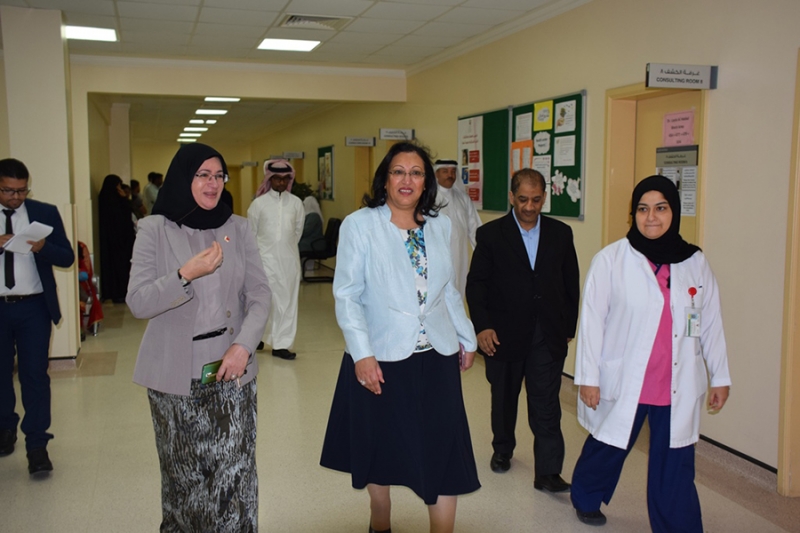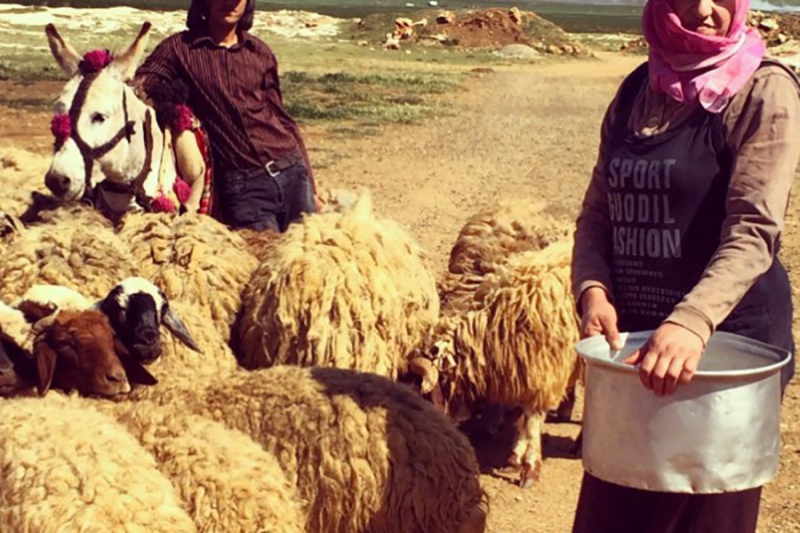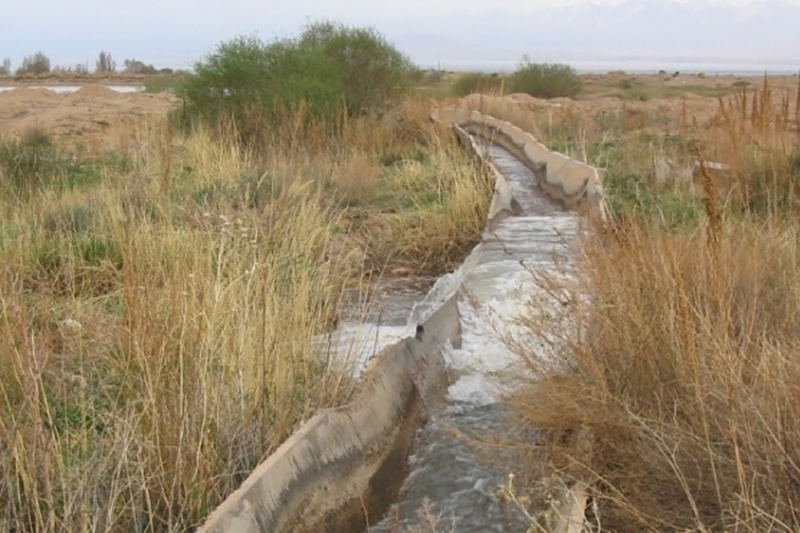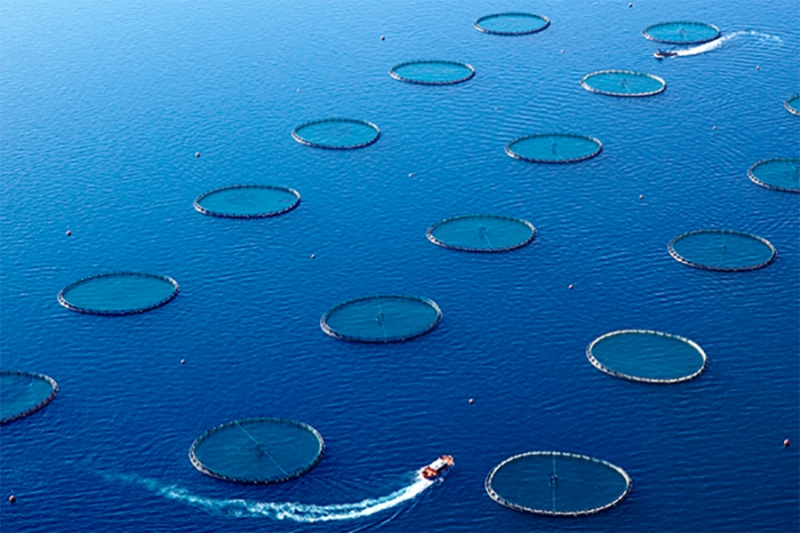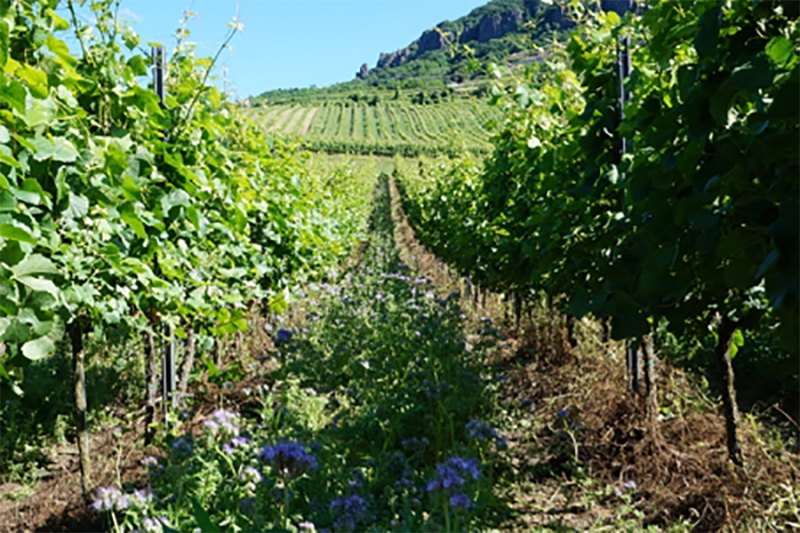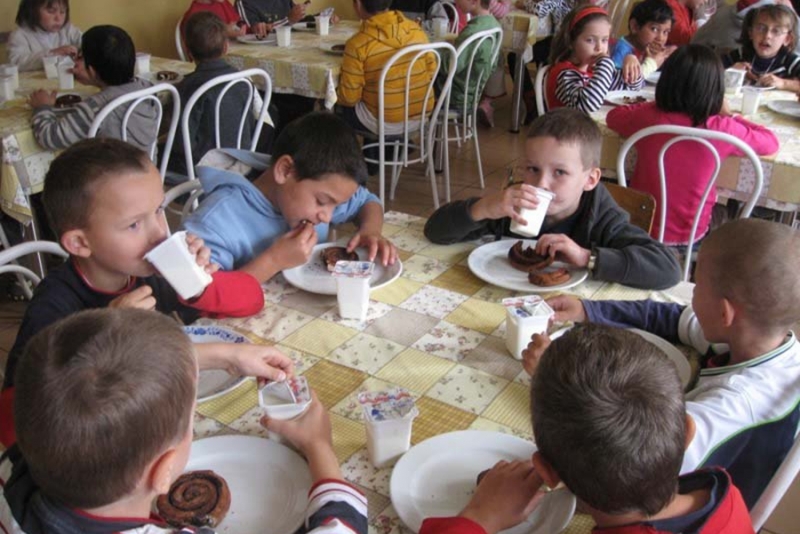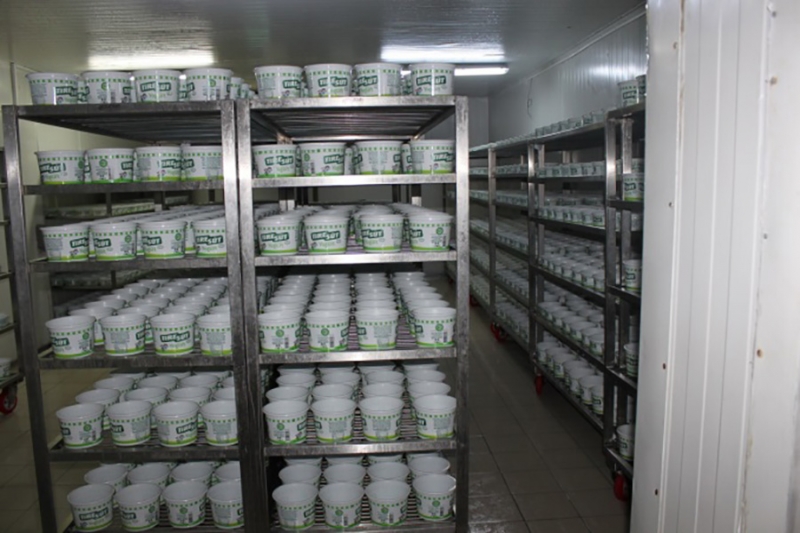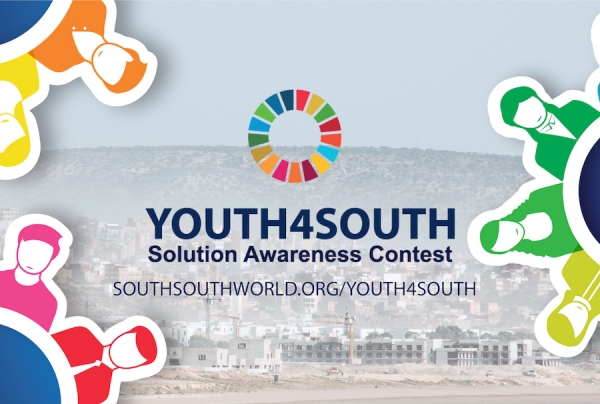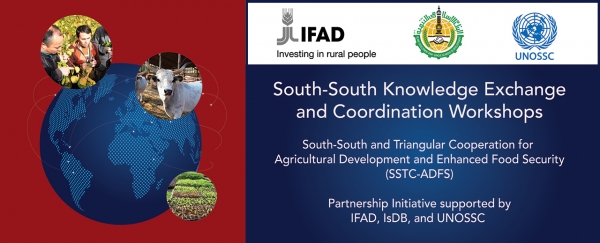 SSDA Solutions
South-South Development Academy
SSDA Solutions
South-South Development Academy
Blog
Geographic focus: Arabic speaking world but also including countries outside the region in which Arabic humanitarian organizations are operating (e.g.: Myanmar and Mali). The main target is countries from the Gulf Cooperation Council (GCC).
Thematic areas: The portal focuses on issues related to humanitarian response. Organizations are able to upload materials, such as humanitarian news, project reports, research papers, needs assessments, evaluations, funding updates, humanitarian country profile etc.
Steps/stages in practical application:
The idea for the Portal stemmed from the gap that exists between what international organizations publish on humanitarian emergencies and the information produced in the Arab World. This information gap encouraged a network of 10 organizations, led by the OCHA Gulf Liaison Office, to create the Arab Humanitarian Portal. The aim of the portal is to compile and centralize humanitarian information products and to be a platform that can promote dialogue and improve the flow of information between humanitarian organizations.
The site is currently being hosted by OCHA on behalf of the Humanitarian Information Network.
Results to Date:
"Arabhum" is available in Arabic and English and is currently being populated with news, maps, training manuals, up-coming events information and employment opportunities. The initiative was launched in Kuwait on 1213- September 2012 and there are concerted efforts to promote the website and encourage organization in the region to submit material to be uploaded.
Countries that benefited: Saudi Arabia, Oman, Kuwait, UAE, Qatar and Bahrain.
The project benefits the Arab World in general but targets the above countries in the first phase.
Focal Point and Contact:
Majed Abu Kubi
Gulf Liaison Office
OCHA Gulf Office
P.O. Box: 114812
Al Mushraf, Abu Dhabi
United Arab Emirates
+971 (0)50 622 7472
This email address is being protected from spambots. You need JavaScript enabled to view it.
Regional Geographic focus: Member States of the League of Arab States
Thematic areas: The Arab AIDS initiative is partnership between LAS, UNAIDS and CSOs to help Countries in enhancing national responses and achieving the targets of the 2011 UN Political Declaration on AIDS.
Steps/stages in practical application:
The Arab AIDS Initiative is based on the decision of the Executive Council of the Arab Ministers of Health in October 2011 to endorse the Riyadh Charter on combating HIV as a Pan-Arab document. The Riyadh Charter had come out of the Saudi Initiative workshop held in April 2011, which all GCC members had endorsed to reaffirm their political commitment to HIV. Then in November 2011, at the Saudi Forum on Uniting Arab Countries against AIDS, Arab countries advanced a series of recommendations that called for Arab countries to review their national strategic plans, with particular focus on protecting the human rights of people living with HIV and scaling up HIV prevention, treatment, care and support services. The recommendations of the Saudi Forum were adopted by the Council of the Arab Ministers of Health in its 37th session in Amman Jordan in March 2012. As part of this decision, the Ministers of Health agreed to develop a unified Arab AIDS Strategy and constitute a technical committee under the leadership of Saudi Arabia that would follow up on the recommendations of the Saudi Forum and develop the Arab AIDS Strategy.
Results to Date:
- Arab Convention on HIV prevention and protection of the rights of People Living with HIV, an advance document that address the needs of People Living with HIV and endorsed by the Arab Parliament in March 2012.
- Outlines of Arab AIDS Strategy to achieve the targets of the 2011 UN Political Declaration on AIDS that came out from a technical meeting in Riyadh in November 2012.
- A technical committee on HIV under the umbrella of the LAS and the leadership of the Kingdom of Saudi Arabia to oversee the finalization and implementation of the strategy.
Focal Point and Contact:
Eltayeb Elamin
UNAIDS Regional Support Team for the Middle East and North Africa (RST-MENA)
Abdul Razzak Al-Sanhouri Street, Nasr City, Cairo, Egypt.
Email: This email address is being protected from spambots. You need JavaScript enabled to view it.
The solution was initiated in January 2013 by the Society for the Protection of Nature in Lebanon (SPNL), an environmental NGO, in order to help conservation of the various ecosystems, nature, and biodiversity in the Arab world by empowering women to pursue the sustainable use of renewable natural resources and enhance their livelihood in five Hima Sites including Hima Aanjar, Hima Kafar Zabad, Hima El- Fekha, and Himas of Qoleileh and Mansouri.
The Society for the Protection of Nature in Lebanon (SPNL), the BirdLife national partner in Lebanon, aims at protecting nature, birds and biodiversity in Lebanon and to ensure the sustainable use of natural resources through reviving the Hima concept.
Hima means protected area in Arabic; it is a community-based approach used for the conservation of sites, species, habitats, and people in order to achieve the sustainable use of natural resources. It originated from more than 1,500 years ago where it was spread along the Arab Peninsula as a “tribal” system of sustainable management of natural resources.
Women have basic, influential, and guiding role in local communities and in raising up new generations. Moreover, rural women have differentiated responsibilities for maintaining the household (food, medicine, fire, water), where many of these activities are dependent on the environment. Therefore, the state of the environment has a massive impact on women and their role and responsibilities, and affects their health, their labor, and daily life.
In many if not all countries of the Middle East, women and other marginalized groups in local communities have difficult access and almost no control nor ownership over the use and management of often scarce natural resources that negatively affects their income generating capacities and livelihood.
The UNW Fund for Gender Equality programme “Promoting Hima Women Empowerment for Conservation and Livelihood” that aims to enhance the livelihood of rural women through the revival of the Hima approach in the sustainable management of the IBAs (Important Bird Areas) of Lebanon addresses this problem in five Hima sites.
By end of the project:
- Women groups should have increased understanding on Hima approach and proactive action on natural resources sustainable use, through organizing different training workshops on Hima approach, sustainable use of natural resources, conservation of globally threatened species, and site local action plans.
- Women groups should have raised voice in the local committee for the sustainable management of the site, through organizing different capacity building trainings on CEDAW and right-based approach, leadership, decision making, and group work collective skills, in addition to initiating women legal cooperatives within the sites.
- Women groups should benefit from new job opportunities and income generating activities within the sites, through developing ecotourism and marketing plans, organizing training workshops on the skills needed for the identified job opportunities and how to start a small business, manage it, generate income, and manage financials in it. Furthermore, women will be provided with the needed tools and equipment for the identified job opportunities and various marketing approaches will be used to support women such as branding, brochures, linkage with SPNL website, festival etc.
- Rural women and decision makers should show increased interest to involve women in the protected area management, through exchanging visits between the Hima sites, developing a guide including the success stories and lessons learned, and using different media tools to disseminate these lessons.
The awareness campaign and efforts on improving knowledge and skills of women have had an impact on changing decision makers’ and communities’ perception of the women’s role in the management of Himas. It has led to the increase of women representation in Himas local committees, establishment of an environmental committee within one of the sites where the majority of members is women in addition to women holding high positions in the management of the protected sites, development of an effective local action plan that realizes the vision of rural women in Hima management, and the revival of sustainable cultural practices by women for improved livelihoods including grazing, collection of medicinal and edible plants, weaving handmade carpets from natural wool and natural dye, and needlework are among other practices that optimize on local resources.
Himas have contributed to an increase in the quality of biodiversity, the number and variety of bird species within a year time in Hima Kfar Zabad; a 10% increase of the globally threatened Syrian Serin bird in Aanjar/Kfar Zabad wetlands; the reappearance of the common otter which is a globally threatened species around the wetlands in Hima Aanjar; and the detection of 50 nests of Sea Turtles in Hima Qoleileh/Mansouri in 2014.
The Hima concept was adopted in strategies of more than 95% participating representatives from different countries all over the world, through the submitted Hima Motion at the IUCN 2012 Congress held in Jeju, Korea.
Partners: The Society for the Protection of Nature in Lebanon (SPNL), UNW Fund for Gender Equality, Hima Fund, local municipalities, the BirdLife (UK), IUCN (Switzerland), MAVA Foundation (Switzerland), MedWet Forum (Greece), and WANA Forum (Jordan).
Contact details:
The Society for the Protection of Nature in Lebanon (SPNL)
Awad Bldg - 6th Floor - Abdel Aziz Street, Hamra
P.O.Box: 11-5665
Beirut - Lebanon
Jamal Hamzeh/ coordinator of the UNW FGE funded project in SPNL
“Promoting Hima Women Empowerment for Conservation and Livelihood”
0096170877529/009611344814
Email: This email address is being protected from spambots. You need JavaScript enabled to view it., This email address is being protected from spambots. You need JavaScript enabled to view it.
Owner: ABU DHABI FARMERS' SERVICES CENTER
http://www.adfsc.ae/en/pages/home.aspx
Core Business
Working with local farmers to improve farming practices, resulting in higher production levels and better quality crops while conserving the country`s environmental resources. In turn, the center partner with retailers and large corporate and government customers to provide them with a secure supply of quality local produce fresh from Abu Dhabi`s farms.
The model will allow learning consumer demands and current supply trends. The approach of the knowledge can effectively increase the collaboration of farmers and ensure that the industry grows the right quantities of the right food - without the need for subsidies. Essentially, the center offers a full suite of services - from field to market - as we work to develop sustainable agriculture for Abu Dhabi. To increase farming productivity and contribute to national food security and sustainable agriculture.
Activities:
- Provide on-farm advisory and technical services as well as the necessary inputs to help farmers grow larger volumes of better quality crops - which, in turn, leads to increased incomes
- Develop new and strengthen existing marketing links to wholesale and retail outlets by providing modern, efficient supply chain services, including the packaging and marketing of produce
- Enhance the image and appeal of domestically grown produce
- Ensure the supply of safe food and traceability from producers to consumers
- Represent the best interests of all farmers in strategic agricultural policy formulation
- Control and reduce agricultural water consumption
Services:
- ADFSC offers a wide range of free services to farmers including:
- Extension services and training, such as:
- Enhanced on-farm livestock management
- Improvements to date palm care, nutrition and harvesting
- Improved irrigation systems and scheduling
- Advice to improve crop production
- Access to best-practice demonstration farms
- Distribution of research findings and improved agricultural techniques
- Assistance in improving farm planning, technology and management Services for a small fee
- Extension services and training, such as:
- The Center also offer a range of fee-for-service activities for farmers including:
- Date Palm Services Contract
- Farm Management Services Contract
- Fresh Produce Supply Contract
Success Stories:
http://www.alittihad.ae/details.php?id=69156&y=2014&article=full
- Farmers Services Centre has succeeded in cultivating new types of alternative feed Rhodes, which drain large amounts of water and cause a doubling of soil salinity. The center encouraged farmers to replace the cultivation of new species feed Rhodes, where these feeds characterized by their ability to withstand soil salinity and some consume water at a rate of at least more than 25% of the feed consumption Rhodes. Rhodes grass crop comes on the top of the list of crops have an adverse impact on water resources and stocks of underground water, where it was use more than 90 billion gallons of water a year, or almost more than 150 million cubic meters of water.
- The farmers service center has a number of integrated farms in Abu Dhabi and the Western Region and Al Ain, the center held training workshops to introduce the philosophy of the model farm and objectives, and keep farmers on the neighborhood and practical model of integrated farm which the Center seeks to apply the standards to all local farms to apply the principles of sustainable agriculture.
- The model farms provides best agricultural practices as well as the allocation of integrated farm systems of modern irrigation and cultivation of vegetables and animal feed, to become a model for the definition of farmers in the Emirate of Abu Dhabi, the best agricultural practices, as well as to show the capacity and efficiency of agricultural technology and modern irrigation to improve water use in Agriculture and double production, where the farm is to provide state of the art of Agriculture and Irrigation of modern technology.
- The program "Guaranteed Minimum Price" which the center applies with suppliers of fresh vegetables, it is one of the most effective program to ensure the farmers` right and protect them from fluctuations in market prices, where the center ensures a minimum income for farmers to be able to planning and budgeting in an appropriate manner, taking into account production costs, when the final market price is higher than the minimum guaranteed price.
- The center has achieved remarkable and impressive success in integrated management program for the palm trees harvested and so on to improve the nutrition of date palm trees, which the Center has applied during two consecutive seasons Program.
- Farmers Services Centre in Abu Dhabi officially Launched the first sign of a national commercial for local products and fresh as the "harvest our farms," as a confirmation of the quality of products of the fruit and vegetables, poultry, meat and eggs produced in Abu Dhabi farms, and applying the best modern agricultural practices in all areas related to agricultural and livestock sector in the context of his quest for the advancement the agricultural sector in the Emirate of Abu Dhabi
The solution can be replicated in countries where its land has the ability to withstand soil salinity and with less consume water.
Contacts:
ACSAD - This email address is being protected from spambots. You need JavaScript enabled to view it.
Abu Dhabi Farmers' Services Center (ADFSC)
Head Office, Abu Dhabi.
Address: Mohammed Bin Zayed City Building, Capital Mall, Floor 2-5.
Telephone: +97128138888 / +97128138889 Fax: +97128139999
Email: This email address is being protected from spambots. You need JavaScript enabled to view it.
Women`s cooperative movement in Turkey started in early 2000s with the aim to bring female labor force into economy, support and develop social and cultural activities of women, and provide better health and environment.
One of the examples of the this trend is Hıdırlık Agricultural Development Cooperative founded by seven women in 2010 to give women of Seferihisar district of Izmir, Turkey, an opportunity to earn livings from production and sale of home-made food and products and gain economic independence.
Nowadays, the Hıdırlık Rural Development Cooperative consists of more than 80 members, where more than 400 women are direct economic beneficiaries.
To ensure the adequate income for the producers and farmers, especially women, the solution organizes women-producer and offers them services in selling home-made food and products via the internet and providing trainings on food preparation, hygiene and agriculture to improve the quality of the products.
The members of the cooperative collect local natural products such as grapes and other fruits grown in home gardens and sale the products through e-commerce. Cooperative products offered to the customers in Izmir and Istanbul are highly demanded due to low prices as women put a small commission of 2%, on the products. The significant increase in orders has affected logistics in town, increasing the number of “Cargo Business”. This initiative also motivates husbands of women to engage in sales by taking orders.
The cooperative use "organic agriculture" and "good farming" production methods in order to supply more organic agriculture products, including organic seeds.
Women sale the products on local Bazaars on Sundays and on "producer bazaar" (spices, fruits, vegetables, honey, herbs, pickles, bread, cheese, eggs, etc.) on Tuesdays for customers from Seferihisar and neighboring districts.
The solution achieved the following results:
- Empowered women by providing online sales opportunities for their products;
- Enhanced food security by creating direct sales channels between the producers and customers all over the country;
- Annual turnover estimated TL’s 000.
The cooperative activities cause substantial social effect in the area: increased women visibility in society; the increased earnings led to invest more in education of children; motivated young females to receive higher education and reduced migration of locals to big cities
Partners: Seferihisar Municipality, Association for Supporting Slow Living, Izmir University of Economics Culinary Arts Department.
Contact information:
Turkey
Hıdırlık Agricultural Development Cooperative
Address: 107. Street No. 12 Tepecik Mahallesi Seferihisar / Izmir
Contact person: Dilek Özkan
Telephone: 0 541 955 16 11
Email: This email address is being protected from spambots. You need JavaScript enabled to view it.
http://ssda.southsouth.world/ssda-blog/author/42-webadmin?start=288#sigProId7d7bbc0433
After the collapse of the Soviet Union and collective farms, farmers in Kyrgyzstan were left without an organization that would be responsible for on-farm irrigation. One of the first from former Soviet republics Kyrgyzstan introduced water fees and formed participatory Water Users Associations (WUAs) for on-farm irrigation operation and maintenance.
In August 13, 1997 the Government built a legal foundation to introduce the system of WUAs around the country and in March 2002, institutionalized them by adopting the Law on Water User Associations.
The main functions of a WUA are operation and maintenance of the on-farm irrigation system, including water fee collection, water distribution and dispute resolution and self-financing of these tasks, while the government keeps responsibility for the inter-farm irrigation networks and main canals.
The WUAs operate under the principles of self-interest, ownership and community participation where water users are actively involved in the discussion on budgeting and identifying priorities to be given to user’s applications for the rehabilitation of infrastructure.
The management structure of WUAs is the following:
- General Assembly of Members - responsible for policy making and setting up the budget, takes place once a year
- Elected Council (usually 7-11 members) with a chairman (or chairwoman), who all work in an honorary capacity:
- WUA Executive - accountable to the GA:
- hydro-technician:
- accountant:
- mirabs (water masters), employed during irrigation season.
At the beginning of the season, each farmer has to make a contract with the WUA about the amount of water he needs. Accordingly, the WUA makes a contract with the RayVodKhoz (District Water Administration) on the overall amount of water. All WUAs have to pay a water fee of 0,03 KGS (equivalent to 0,0004 USD) per m³ to the RayVodKhoz for the transportation of the water. WUAs have the right to determine fees per estimated costs to cover fee to RayVodKhoz, staff salaries, social duties, rehabilitation work, taxes, transportation costs, administration costs, water loss.
To ensure transparency and accountability, information on the budget is publicly accessible in WUA offices. Farmers who are not members of the WUA but use water from channels under WUA responsibility have to pay higher fees (around 1.5 times) that determined by the WUA.
Currently, the country is numbering 486 WUAs that serve 70% of the irrigated land with total number of members of more than 166,000.
As a result of the reform:
- Decentralization of public administration increased the efficiency of irrigation
- Supply of irrigation water as well as the collection of water fees is now more transparent and fair.
- The water saving irrigation technologies such as adapted to climate change, have been introduced.
- The number of disputes related to water has decreased.
- The communities involved have significantly improved the capacity in terms of organization and management development initiatives.
Partners: The World Bank, UNDP, Swiss Agency for Development, USAID, FAO.
Contact information:
Union of WUAs of Kyrgyz Republic
Phone: +996 (312) 56-45-86, mоb: +996 (778) 21-44-21
Email: This email address is being protected from spambots. You need JavaScript enabled to view it.
Turkey is one of the most significant countries in the world for its richness in plant genetic resources and plant diversity and one of the centres of origin and/or diversity of several crop plants and many plant The Central Research Institute for Field Crops (CRIFC) carries out applied and basic scientific researches on improving new field crop varieties by conventional and molecular breeding methods and producing elite seeds of those varieties.
Since 2009 CRIFC with support of the International Center for Agricultural Research in the Dry Areas (ICARDA) has been applying the doubled haploid methods that shortens the breeding period and the duration of the development of genetically pure lines. The production of doubled haploids (DH) has become a necessary tool in advanced plant breeding institutes and commercial companies for breeding many crop species, including Barley and Wheat. Doubled haploid technology creates efficiencies in plant breeding by bypassing the natural sexual reproductive process.
The research conducted by the CRIFC aimed to:
- Obtain 100% homozygous plant in short time,
- Apply DH lines for experimental materials in terms of genetics, cytological and physiological studies,
- Reduce Breeding period,
- Put into practice this technic for all breeding programs for future strategy.
Achieved results are:
- Thousands DH lines from Barley and Wheat for breeding program has been obtained;
- Owing to this technic the breeding period in Barley and Wheat was shortened 5 years against 6 years needed in standard plant breeding program;
- The technique has started to be applied to other plant breeding program.
Standard breeding programs require 50 thousand euros each year and bigger fields with 2000 lines, while application of the DH method needs nearly 17 thousand euros and 200 DH lines, therefore a smaller field, that makes substantial difference in terms of resources required, expected yield and environmental impact.
Partners: ICARDA, wheat and barley breeders
Contact information:
Turkey
Central Research Institute for Field Crops
Address: Şehit Cem Ersever Cad. No: 9-11 Yenimahalle ANKARA
Fax: + 90 312 327 28 93
Telephone: + 90 312 343 10 50
Email: This email address is being protected from spambots. You need JavaScript enabled to view it.
Marine fish farms mostly localized in the seas of around İzmir, Muğla and Aydın provinces created serious conflicts between public, tourism stakeholders and fish farmers due to environmental or visual pollutions created by aquaculture.
To solve the conflicts between stakeholders, Ministry of Environment and Urbanization of Turkey initiated new regulations on environmentally sustainable aquaculture in 2007 that have been implemented by the Ministry of Food, Agriculture and Livestock of Turkey.
The regulations consist of the arrangements on the monitoring of the Tropical Index for Marine Systems (TRIX). According to the index, no fish far can be established in the closed bay areas where eutrophication risk is high and existing fish farms are not allowed to function. Also, marine fish cages were transported to the area 1.1 km away from the coast. The area must have minimum 30 m depth and 0.1 m/s current speed. These regulations covered all the entrepreneurs (existing and new) as above mentioned.
The most important success here was resulted from making regulations and obligation of farmers to these regulations. Fish farmer associations, although they were against the regulations at first, made efforts to convince their members. Moreover, availability of specific materials for open sea helped the farm transfers.
The inter-sectoral conflicts have not yet finished completely, but have been able to be diminished at a remarkable level. The pollutions of closed bays, particularly those with limited water current, were prevented. Due to the transfer of the sea cages to the open sea, both marine aquaculture and tourism activities can be operated in the same region. In other words, Turkish marine aquaculture presently gives minimum impacts on the coast thanks to the regulations.
Budget: Construction of durable cage systems for open seas costs 500-700 $/ton fish for 10 m diameter cages and 200-300 $/ton fish for 20 m diameter cages.
Partners: General directorate of Fisheries and Aquaculture, Ministry of Food, Agriculture and Livestock of Turkey, Ministry of Environment and Urbanization of Turkey, Aquaculture Farmers Association
Contact information:
General Directorate of Fisheries and Aquaculture, Ministry of Agriculture, Food and Livestock of Turkey
Address: Eskişehir Yolu 9. Km Lodumlu / ANKARA
Telephone: +90 312 258 3016 (10 lines)
Fax: +90 312 258 3060
E-mail : This email address is being protected from spambots. You need JavaScript enabled to view it.
http://ssda.southsouth.world/ssda-blog/author/42-webadmin?start=288#sigProIdf9e6f3c756
Soil protection, including protection against erosion plays an important role in tillage systems applied in environmentally friendly grape growing technologies. In the significant part of the Hungarian vineyards with sandy soils, the intensive mechanization of the last decades had a series of unfavorable impacts on the soil. The Balaton Wine Region is characterized by conditions with ecologically less favored, drier growing sites (in certain vintage years). According to forecasts droughts will become more frequent, the average temperature will rise and heavy rains are expected to become more common due to climate change. Abiotic stress conditions due to improper soil cultivation will have a negative impact on the growth of vines.
For the partial elimination of the problems in soil biology life, soil structure, and environment protection and for the development of the mechanization technology Hungary developed the modern and unique environment-friendly tillage systems. To investigate the effects of the treatments on the change in soil moisture, the nutrient supply of both the plant and the soil as well as on harvest results, in 2006 the Badacsony Research Institute for Viticulture and Oenology of the National Agricultural Innovation Centre started a long-term experiment, which included series of comparative tests on soil cultivation methods in the institute’s vineyards on the southern slopes (12 to 14%) of the Badacsony hill in the Badacsony Wine District, with vines planted in a hill to valley direction.
Within the experiment vineyards with cover crops, straw cover methods have been developed. Chemical treatments were replaced with modern, controlled line cultivation machines, and for the loosening of compacted soils are carried out subsoiling.
The following methods have been compared: soil covering with organic waste, permanent and temporary plant covering and mechanical tillage in a (peak-to-valley-way) sloping system. It was found that amongst the lines examined the inter-row area covered by straw had the highest soil moisture content. Therefore, the most optimal and effective method in terms of soil nutrient supply and moisture retention is the mulching process with organic plant residues. An additional and essential advantage of this process is the enhanced effectiveness combating the erosion process.
Soil covering - the mulch or cover crops (temporary and permanent plant cover) - eventually assists in protecting the soil from drying out, from erosion, deflation and their role in weed control cannot be neglected either. In the event of an oversupply of rain, it reduces eventual disorders in nutrient supply (N, P, K). The cover crops (especially the pea-flower mix) help in compensating soil compaction, in optimizing the nutrient supply (especially nitrogen), in maintaining favorable soil moisture conditions as well as positively influencing, increasing the organic contents of the soil.
The benefit of using the organic covering material (mulching matter) is confirmed by the fact that in every vintage it has positive effects on the various parameters of the soil (optimal soil moisture content, nutrient-uptake-condition) and the amount of yield increase significantly in comparison to the mechanically till aged control treatment.
To spread information on this solution among the grape producers the experimental results have been published on production technological presentations, university conferences, in journals and in the university education.
Budget: 1000-1800 EUR/ha (including mulching matter as well as delivery and cost of getting out. If consider the costs, a significantly cheaper solution from the periodic plant mulching methods is the mulching with leguminous plants, while they fix the atmospheric nitrogen in an available form for the plants, at the same time they loosen the soil with their roots and save it from the erosion.
Partners: Technical University of Budapest, Pannon University of Keszthely, St. Stephen`s University
Contact information:
National Agricultural Innovation Centre
Badacsony Research Insitute for Viticulture and Oenology
Address: Badacsony Research Station: 8261 Badacsonytomaj, Római út 181, Hungary
Contact person: Dr. Varga Péter, Senior Research Fellow
Phone: + 36 87 532200
E-mail: This email address is being protected from spambots. You need JavaScript enabled to view it.
Hungary has mandatory regulations of school feeding in place that set up nutritional requirements for different age groups with the objective to achieve healthier meals in mass catering, thus contributing to the prevention of diet-related non-communicable diseases, and childhood obesity.
By assisting to avoid certain nutritional risk factors already at early age, the legislation offers solution for a wide societal demand.
The provisions apply to kindergartens, primary and secondary schools, institutes providing social care, homes providing care and protection for children, and to patient catering in health care institutes.
The main areas regulated by the decree are the followings:
- Tolerable daily energy and salt intake for the different age groups (in a gradually decreasing manner for salt),
- The different service types (e.g. whole day care, 3 times a day meal, kindergarten catering, hospital care), the number of meals, daily amount of dairy products, cereal based products, fruits and vegetables,
- Restrictions on the consumption of certain foodstuffs, among others the list of foodstuffs which are not allowed to use in mass catering (e.g. energy drinks defined in the law on the public health product tax, foodstuffs containing alcohol, sugar sweetened beverages, soft drinks, caffeine-containing drinks under the age of 18),
- Mandatory service for people with special dietary needs,
- Special educational requirements for those who plan the daily menu, especially the dietetic menu.
School Food Policy (SFP) is embedded in other policy as for health or education.
The decree No. 19 of 2015 (IV. 24.) of the Hungary Ministry of Agriculture regulates the kindergarten and school milk program. This Decree in line with EU norms, foresees a contribution to be granted to a wide range of educational institutes (kindergarten to secondary schools, and schools for pupils with special educational needs) for the distribution (of an average quantity of 0,25 liter) of milk per student.
In the framework of this “School Milk Program” the Hungarian Government gives price subsidy to schools and nursery schools which provide milk, cocoa or lactose-free milk to the children In addition to milk, the children now already get yogurt, kefir and cheese. Target group: 4-18 year old school children
Duration: 27 week
Accompanying educational measures: tasting classes, educational material, farm visits, contests and rewards promoting healthy eating habits.
The milk products are financed by community resources and central budget funds.
Contact information:
Ministry of Agriculture of Hungary
Attila Nagy
Tel: +36 1 7953 998
E-mail: This email address is being protected from spambots. You need JavaScript enabled to view it.
http://ssda.southsouth.world/ssda-blog/author/42-webadmin?start=288#sigProIda95b61dda3
Solution achievements:
- The register of family farming since 2001. The Hungarian regulations provide favourable taxation for family farms that are preferred in the case of land accessibility. Just private persons can be member of family farms that stress the role of small farmers in the Hungarian economy.
- From 2010 the registered small farmers can process their raw materials at home in safety and transparent hygienic conditions and sell their products on local farmers markets. This kind of new governmental approach and the EU support system facilitate the access to markets for small and family farmers. In the last 4 years more research projects were conducted to get to know more details about short food supply chains, consumers’ and farmers’ demands. These projects tried to measure the sustainability the multifunctional family farming as well as the new markets and channels in the local food systems.
Solution outcomes:
- The definition of family farming was introduced by the Law of 2001 with the goal of strengthening the private farming based on family labour force as well preferring the access to land by family farmers. This approach shall consider that it is not allowed to narrow the possible landowners in discriminative way. The number of the registered family farmers and small famers grew in the last years. Now in Hungary 20 000 family farms are found that means 50 000 persons as member of family farming.
- Specialized financial support does not exist in Hungary but the family farms are preferred in the case of allocation of EU subsidies or land buying. The small farms may have resort to accessible credit construction and they are the main beneficiaries of Rural Development Programs.
Solution’s impact:
The economic strengthening of small farmers/family farmers may contribute to increase their negotiating power: more weight in contract negotiations, ensuring fair terms and conditions, gaining access to public and larger scale markets. The whole regulation of family farming is currently under review in Hungary that extends to tax policy, land policy, civil law and support policy. The collaboration between family farmers who are strong and adequate for legal standard may reduce competition between many small un-coordinated supply chains.
Finally in term of this kind of moral and mutual support can combat isolation felt by small-scale producers; it can assist the integration of newcomers into food and farming sectors.
Solution budget:
Currently it is not possible to esteem concrete budget although it would be worthwhile to looked at the following costs:
Research institutions, governmental and civil collaboration needed.
First of all ground-level studies are requested and then law, tax and agricultural administration experts can work on local legal framework.
Contact information:
Ministry of Agriculture of Hungary
Department for EU and FAO Affairs
Department for Agriculture
Anikó HETYEI, expert
Tel: +3617953861
E-mail: This email address is being protected from spambots. You need JavaScript enabled to view it.
Katalin Olga KUJANI expert
Tel: +3617954232
E-mail: This email address is being protected from spambots. You need JavaScript enabled to view it.
Turkey is one of the most suitable countries for organic farming due to the presence of a wide variety of agro-food products ranging from cold temperate to subtropical well adapted to different agro-ecosystems, rich biodiversity and traditions in agriculture.
Organic agricultural support policies in Turkey include:
- Area payment;
- Subsidized credit;
- Environmental Reservation Area;
- Biological and Biotechnological Control;
- Agricultural Advisory Service Support;
- Partly Export Support.
In Turkey 35% of total conventional milk production occurs in the Ege Region. Izmir Province is one of the provinces with the highest milk production with 22% of the production in the Ege Region. Organic agriculture is a form of agricultural production in which chemical input is not used and where each step from production to consumption is controlled and certified. Therefore, adopting and applying organic agriculture methods is increasingly being considered by farmers.
Tire Milk Cooperative is one of the 21 Organic Products Producer Organizations in Turkey that operate in organic agriculture.
The success of Tire in dairy production can be attributed to a plentiful natural infrastructure including natural resources, climate, and topography; favorable economic and regulatory conditions provided by the government; private sector and private bank involvement; the introduction and spread of modern technologies and scientific approaches; funding possibilities and improved financial systems; availability of trained workers; the support of Tire and İzmir municipalities and the good management of the cooperative.
Tire Milk Cooperative has developed partnership with:
- Food, Agriculture and Livestock Ministry (MFAL);
- İzmir Provincial Directorate of MFAL;
- the Tire District Directorate of MFAL;
- Izmir Metropolitan Municipality;
- Tire Municipality;
- Ege University Faculty of Agriculture (Consulting Partner);
- Agricultural Research Institute;
- Department of Training, Extension, and Publications;
- Private companies in the dairy production chain (produce, process, store, transport, and sell dairy products);
- Agricultural input providers;
- Agricultural Bank and other banks;
- Animal Breeders Association.
Thus, institutional arrangements have helped in using technologies to increase agricultural productivity in the dairy sector.
Organic farming is a form of farming that requires less investment and offers greater reductions in costs. The farmer converting to organic methods can reduce his costs very effectively, for example, by recycling as much material on the farm as possible. Labor costs can be reduced by taking preventive measures against disease, pests and weeds. He can reduce investment costs by using local plants to prepare proprietary pesticides, by rearing animals to produce fertilizer, milk, eggs and meat, by producing his own cattle feed, sharing equipment and machinery with his neighbors, etc.
The important thing is that Turkey has the necessary preconditions for the development of organic farming. Farmers are familiar with the production technologies. And it is necessary to continually educate and guide interested producers regarding this type of agriculture.
Economic indicators tell us that organic production is gaining in significance today. Prices of organic products are still high, despite the increase in sales volume – between 15% and 50% more than the equivalent product obtained through conventional production methods. There is great potential for development of the local market.
Tire Milk Cooperative grew into a big organization with several intermediary services for its members and also created a strong brand with wide range of dairy products in both regional and national markets.
Tire Dairy Cooperative work under the European Union standards and protect small-scale dairy producers.
The cooperative plays a ‘hub role’ in spreading information, knowledge, innovation, and technology among all stakeholders in the dairy sector. More importantly, it makes great efforts to encourage the development of modern animal husbandry in Tire and shows the latest and most advanced techniques to its members.
Cooperative had changed life and gave more income and opportunity to farmers and city. Cooperative is an important employment source with its 285 employees in its region.
Developing the organic farming, cooperative has economic, cultural and social benefits:
- Economic benefit - in organic agriculture farmer increases his income significantly without increasing the number of cows. There are control and certification service procurement in organic agriculture. Producer can benefit from control and certification bodies individually and also benefit with cooperative as legal entity. The cost of services received by the producer group is low because of that it is shared. In Turkey cooperatives (producer organizations) store, process and pack most of products. Therefore the value added of product increases. So rural-urban migration can be prevented. Cooperatives have social benefits like gathering producers, developing democratic decision making awareness, ensuring mutual communication and developing knowledge network.
- Cultural benefits: producer organizations are organizations formed by farmers generally in the same environment. There is common culture between producers that share the same environment, worry, religion, language and nationality etc. With organization farmers will meet a common point and have a mutual cultural exchange
Organic farming is orientated towards the future and towards further development, not just in terms of environmental protection and the improvement of human health, but also in terms of economic prosperity
Contact information:
Turkey, Menemen / İzmir
International Agricultural Research and Training Center (IARTC)
Telephone : +90 232 831 10 52 Fax: +90 232 831 10 51
E-mail: This email address is being protected from spambots. You need JavaScript enabled to view it.
http://ssda.southsouth.world/ssda-blog/author/42-webadmin?start=288#sigProId81bf42e8ff







